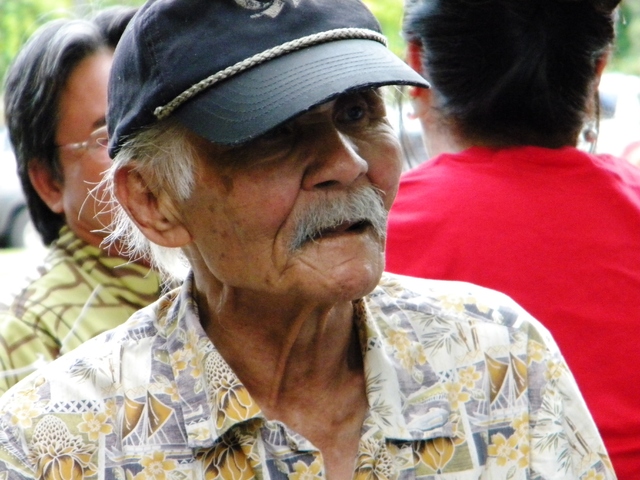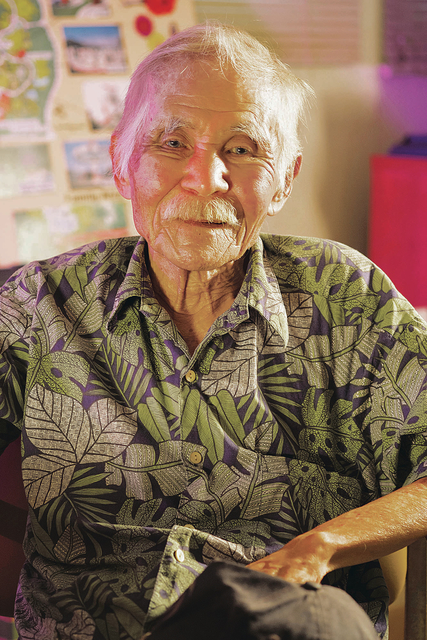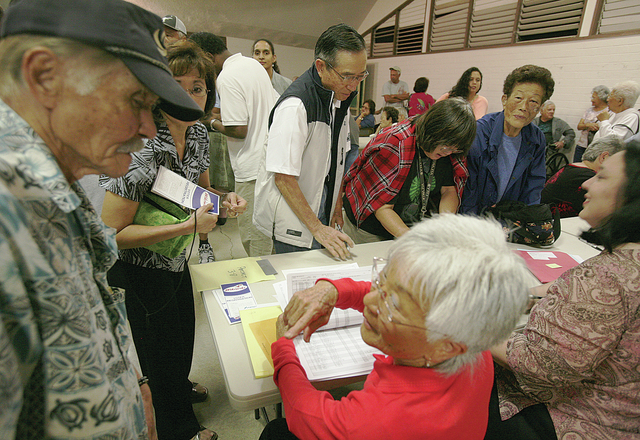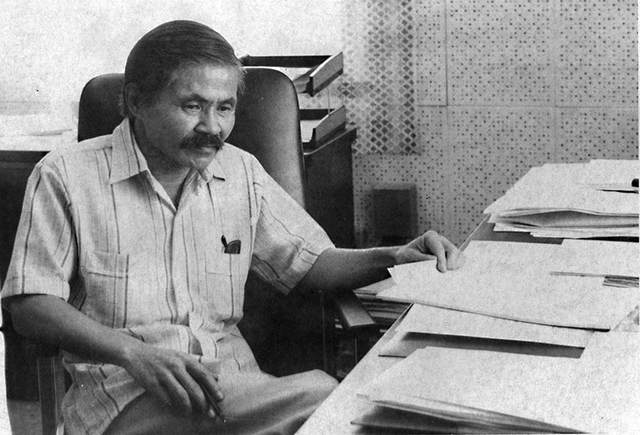George Yokoyama dies at 90
George Yokoyama, community organizer, grant writer and fundraiser, political kingmaker — and Living Treasure of Hawaii — died Sunday at Hospice of Hilo Pohai Malama Care Center following a brief illness. He was 90.
“He was small in stature, but he had a heart as big as the Big Island,” Gerald De Mello, retired community relations director at the University of Hawaii at Hilo and a close friend of Yokoyama, said Tuesday.
Yokoyama was the retired executive director of the Hawaii County Economic Opportunity Council, an organization he led for more than four decades. His grant writing brought almost $100 million in federal and state grants in 45 years through HCEOC, a nonprofit aimed at helping the economically disadvantaged become self-sufficient.
State Sen. Kai Kahele called for a moment of silence for Yokoyama on the Senate floor Monday prior to Gov. David Ige’s State of the State address.
“George was a champion for the underprivileged, the elderly, the disabled — he was such a fantastic individual,” Kahele said. “We always talk about how one person can make a difference; one person can change the world. I really believe that. And George Yokoyama epitomized that.
“Even though he was retired from HCEOC, he still had an office there, still was a presence there, still did a majority of the grant writing for them. He was a big idea type of guy and wouldn’t take no for an answer.”
Yokoyama, a lifelong Democrat, also was a savvy political pollster with a flair for picking and backing winners.
“When George did his polling, you could almost take it to the bank,” Kahele said. “And it wasn’t this fancy computerized polls of today; it was old school. Print up a sheet of paper, ask some questions. He knew who to send those things to. Lick ’em and stick ’em and send ’em out. When the results came back, George could tell you if you had a chance and what areas you needed to work on.”
“Politics, to him, were a means to an end,” said HCEOC Executive Director Jay Kimura, quoting almost verbatim a chapter title from Yokoyama’s 2015 book, “Memoir of a War on Poverty in Paradise.” “He wanted to make sure that those who were elected to office didn’t forget those who were in the lower-income bracket.”
Yokoyama will be posthumously honored by the Honpa Hongwanji Mission of Hawaii on Feb. 11 as a Living Treasure of Hawaii during a gala luncheon in the Coral Ballroom of the Hilton Hawaiian Village Waikiki Beach Resort. He also was presented the key to the county on his 90th birthday, Sept. 19, by then-Mayor Billy Kenoi.
“You can’t be a successful politician unless George is your friend,” Kenoi said during Yokoyama’s birthday bash, a $100-a-plate fundraiser for HCEOC.
Yokoyama delivered voters as well as votes, shuttling senior citizens to the polls in HCEOC’s disabled transportation vans.
“He had a knack for mobilizing people. He had a knack for moving ideas,” De Mello said. “He would convey that in his own way. He’d talk to you about the finer points of a program. He’d go through it, all the way through, and there’d be some emotional tone to it. And, in the end, he’d say, ‘Will you help us?’ And they’d say, ‘Of course, we’ll help you.’ And he’d ask, directly, pointed at you, eyeball to eyeball, ‘Can I count on you, personally?’”
De Mello said Yokoyama’s direct approach worked because “he was never really asking for himself.”
“He was always asking for the community at large and those who didn’t have a voice. He was a voice for the voiceless,” he said.
An admitted juvenile delinquent who started his lifelong smoking habit at 13, according to his book, Yokoyama punched a Hilo High School principal who had insulted him during his junior year and found himself in the Army during World War II because the principal was on the draft board. Without a high school diploma, he managed to enter and graduate from the prestigious Sophia University in Tokyo. A grant-writing seminar provided him with the tools for his life’s work as a warrior against poverty.
“If you looked at his writing, it was a cut above. It was scholarly,” De Mello said. “And I’d always rib him. I’d say, ‘I know you went to Hilo High. But you know where you got your real writing skills. When you went to Japan and you went to Sophia University, taught by Jesuits.’”
Yokoyama’s projects included job training for welfare recipients, a cultural center in Hilo to create jobs and showcase Hawaii’s multicultural and multiethnic populations working in harmony, and a dialysis machine for rural patients in Ka‘u.
“He did a lot for the rural areas, like Ka‘u, Milolii, Honokaa,” De Mello said. “He helped put housing in Milolii, helped get solar energy for them. All of that was really significant for them.”
Kahele said it was Yokoyama who spearheaded a water initiative for previously parched Milolii.
“George said, ‘Why don’t we pump in seawater and do a desalinization process and then distribute that water throughout the community,’” Kahele recalled. “And he went out and got federal funding for it … and built a water desalinization plant in Milolii in the 1980s.
“… You hear the term ‘community organizer’ a lot these days. George Yokoyama defined community organizer and grass-roots organizer 30 years ago. There are so many things you can attribute to George Yokoyama, whether it’s the transportation system for the elderly that he fought for back in the early ’80s, or educational programs, after-school programs for at-risk kids.”
“It’s a big loss for the community, especially the lower-income community, but we all appreciate the work George did,” Kimura said. “Our prayers and thoughts are with the family.”
Yokoyama is survived by his wife, Mieko; son, Paul; and granddaughter, Rosalie. Services are pending.






